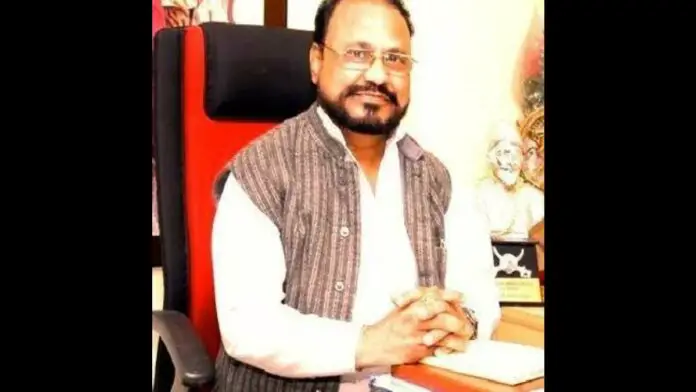
The Bombay HC dismissed a petition filed by Shiv Sena leader and former Member of Parliament Anandrao Adsul seeking to have the Enforcement Directorate (ED) proceedings against him in money laundering case quashed (Anandrao Vithoba Adsul v. Enforcement Directorate).
Adsul can use the statutory remedy of anticipatory bail, according to Justice Nitin Jamdar and SV Kotwal, and there is no need to interfere with the proceedings under Section 482 of the Code of Criminal Procedure (CrPC).
The court ordered that “to protection against arrest, the petitioner has a remedy under the CrPC. In these conditions, the writ petition is dismissed”
The Court also stated that it will refrain from making any observations on the merits of the plea in order to avoid jeopardizing Adsul’s alternative remedies.
The Court said that “the subject in this decision has a statutory remedy under section 438 of the CrPC will not be elaborated, and any observations by us on the merits of the case against the petitioner will prejudice the petitioner if he or she seeks anticipatory relief from the competent court.
The Bench did, however, point out that “it cannot be stated that there is no material against the petitioner (Adsul).” Adsul has filed a challenge to the ED’s investigation into the suspected 980 crore fraud at the City Co-operative Bank.
Surprisingly, the Economic Offences Wing of Mumbai Police had initiated a case for criminal breach of trust, defrauding, and criminal conspiracy under the Indian Penal Code based on Adsul’s allegation regarding suspected irregularities in the loan distribution by City Co-operative Bank.
Surprisingly, the Economic Offences Wing of Mumbai Police had initiated a case for criminal breach of trust, defrauding, and criminal conspiracy under the Indian Penal Code based on Adsul’s allegation regarding suspected irregularities in the loan distribution by City Co-operative Bank.
Later, the ED issued three summonses to Adsul in connection with the case, requiring him to attend in person or through a representative, but Adsul did not answer all three summonses.
Adsul filed a complaint with the High Court, alleging coercion.
Adsul pleaded for the following relief
1. Copy to be provided of the Enforcement Case Information Report (ECIR);
2. For the purpose of putting an end to ECIRs;
3. For the purpose of rescinding summonses;
4. Stop ED from issuing any further summonses and
In accordance with ECIR, no coercive action will be taken.
Adsul also sought a non-coercive temporary remedy, which was denied by the High Court on October 1, 2021.
Adsul’s lawyer, Abhinav Chandrachud, said that Adsul had filed the complaint and that the only reason the ED had not taken action against him was that he was hospitalized and would be detained soon after he was released.
Chandrachud made three major contributions to the prayers.
1. The ED procedures were started when Ravi Rana, the husband of Navneet Kaur, a BJP MP, filed a complaint.
2. The proceedings should be annulled on the grounds of ED’s mala fides and malice.
3. Adsul be given a copy of the ECIR in order for him to pursue necessary legal actions. The summons also lacked sufficient information as to why Adsul was summoned.
ED’s attorney, Additional Solicitor General Anil Singh, objected to the plea, claiming that there were other legislative remedies available and that the Court’s unusual power was not warranted. He also displayed court files containing statements taken in support of the Enforcement Case Information Report (ECIR).
The Court rejected Adsul’s argument, noting that no officer allegedly acting on Rana’s orders had been mentioned in the petition.
“The necessity of demonstrating malafides as a legal foundation is not satisfied simply by implying that Navneet Kaur Rana’s spouse belongs to the ruling dispensation,” the Court stated.
The court found no other reason to intervene and halt proceedings under the PMLA after reaching this decision.








